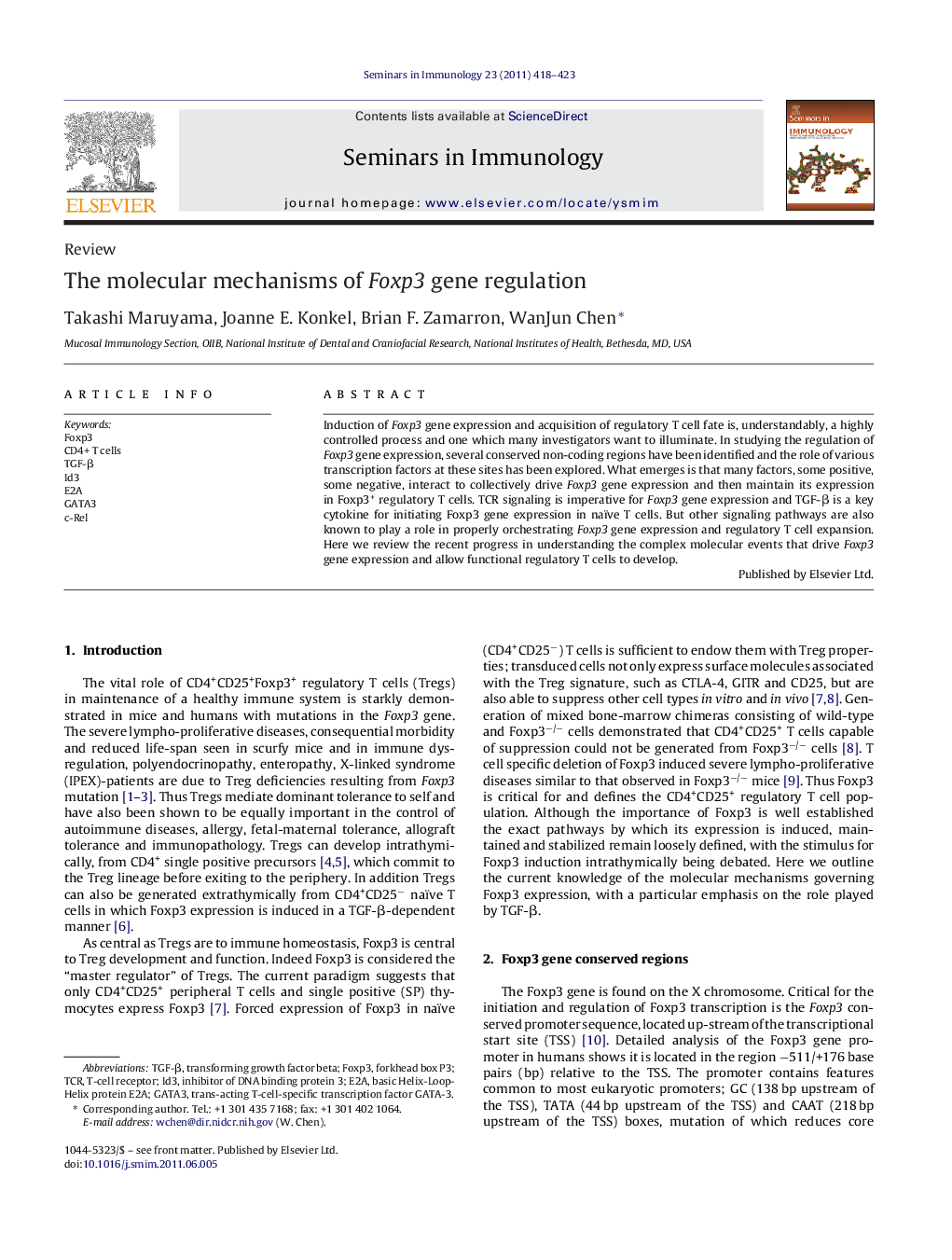| Article ID | Journal | Published Year | Pages | File Type |
|---|---|---|---|---|
| 3391536 | Seminars in Immunology | 2011 | 6 Pages |
Induction of Foxp3 gene expression and acquisition of regulatory T cell fate is, understandably, a highly controlled process and one which many investigators want to illuminate. In studying the regulation of Foxp3 gene expression, several conserved non-coding regions have been identified and the role of various transcription factors at these sites has been explored. What emerges is that many factors, some positive, some negative, interact to collectively drive Foxp3 gene expression and then maintain its expression in Foxp3+ regulatory T cells. TCR signaling is imperative for Foxp3 gene expression and TGF-β is a key cytokine for initiating Foxp3 gene expression in naïve T cells. But other signaling pathways are also known to play a role in properly orchestrating Foxp3 gene expression and regulatory T cell expansion. Here we review the recent progress in understanding the complex molecular events that drive Foxp3 gene expression and allow functional regulatory T cells to develop.
• Foxp3 gene conserved regions. • TGF-β and Foxp3 gene expression. • Repressors of Foxp3 gene transcription.
